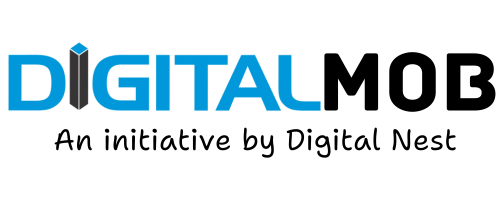thomas8616186
About Company
The Evolving Role of Nurses in Modern Healthcare
Nursing has evolved into one of the most crucial pillars of modern healthcare, reflecting the continuous transformation of the medical landscape. From the origins of caregiving to the complex, multifaceted profession it is today, nurses play an indispensable role in ensuring the wellbeing of individuals, families, and communities. What makes nursing unique is its holistic approach, focusing not only on physical health but also on emotional, social, and psychological aspects. With a comprehensive knowledge of medical care and a human-centered philosophy, nurses bridge the gap between patients and the healthcare system, providing a level of personal care that is often absent in other professions.
Nurses are essential in facilitating communication online class assignment between patients and other healthcare providers, ensuring that the patient’s concerns and needs are met effectively. As healthcare systems around the world grapple with increasing demands, the role of nurses has become more pronounced. In addition to traditional bedside care, nurses now engage in advanced clinical tasks, administer medication, monitor patient progress, and make decisions that impact treatment outcomes. They also collaborate with doctors, therapists, and other specialists to design comprehensive care plans that address both immediate medical needs and long-term health goals.
One of the most significant developments in nursing is the expansion of their role beyond hospitals and clinics. Community health nurs fpx 6111 assessment and evaluation in nursing education initiatives have opened new avenues for nurses, as they work in schools, nursing homes, and even in patients’ homes. This outreach allows nurses to bring healthcare services to underserved populations, addressing health disparities and promoting preventive care. By educating communities on hygiene, nutrition, and disease prevention, nurses help reduce the burden on healthcare facilities and ensure that individuals have the knowledge and resources to take charge of their health.
The role of the nurse has also been impacted by the rise of technology in healthcare. From electronic medical records to telehealth services, nurses are now required to be proficient in a variety of digital tools that improve patient care and streamline operations. Technology not only enhances the accuracy of diagnoses and treatment plans but also allows nurses to spend more time with patients, fostering deeper relationships that are key to successful care. The integration of technology into nursing practice has transformed workflows and allowed for more efficient patient management, which ultimately improves the quality of care provided.
Despite the rapid advancements in technology, the core of nursing remains unchanged: compassion and empathy. Nurses often form close bonds with their patients, providing comfort during vulnerable times and offering emotional support in addition to medical care. This deep connection allows nurses to serve as advocates for their patients, ensuring that their voices are heard and their rights are protected within the healthcare system. Whether they are caring for a newborn or an elderly patient, nurses offer personalized care that is attuned to the individual’s needs, making a profound difference in the recovery process.
However, the demands of the nursing profession bus fpx4063 advanced financial accounting topics and trends can also be incredibly challenging. Nurses often work long hours, deal with high levels of stress, and are exposed to physically and emotionally taxing situations. They are frequently the first responders in emergency situations and must make quick, critical decisions under pressure. Despite these challenges, nurses continue to be the cornerstone of healthcare, demonstrating resilience, dedication, and an unwavering commitment to their patients.
Nursing is also one of the most diverse professions, offering a wide range of specialties and career paths. Nurses can choose to focus on fields such as pediatrics, geriatrics, oncology, critical care, or public health, among others. Each specialty requires a unique skill set, allowing nurses to pursue areas of interest and expertise while contributing to the broader healthcare system. This diversity not only enriches the nursing profession but also ensures that patients receive specialized care tailored to their specific needs.
In addition to clinical roles, many nurses are now taking on leadership positions within healthcare organizations. Nurse managers, educators, and administrators play an essential role in shaping healthcare policies, improving patient care standards, and guiding the next generation of nurses. By leveraging their clinical expertise and leadership skills, these nurses influence the direction of healthcare practices and contribute to the advancement of the profession.
Education is another key aspect of nursing that has undergone significant changes. The increasing hcm fpx 5314 assessment 1 complexity of healthcare requires nurses to pursue advanced degrees and certifications to stay current with new medical knowledge and practices. Many nurses now obtain bachelor’s and master’s degrees, while others pursue doctorates in nursing practice or education. This commitment to lifelong learning ensures that nurses remain at the forefront of the healthcare field, providing the highest standard of care to their patients.
In conclusion, nursing continues to be a dynamic and rewarding profession that plays a central role in the healthcare system. Nurses are not only caregivers but also educators, advocates, and leaders. As the healthcare landscape continues to evolve, the role of nurses will undoubtedly expand, further solidifying their importance in improving patient outcomes and promoting health across all levels of society.
